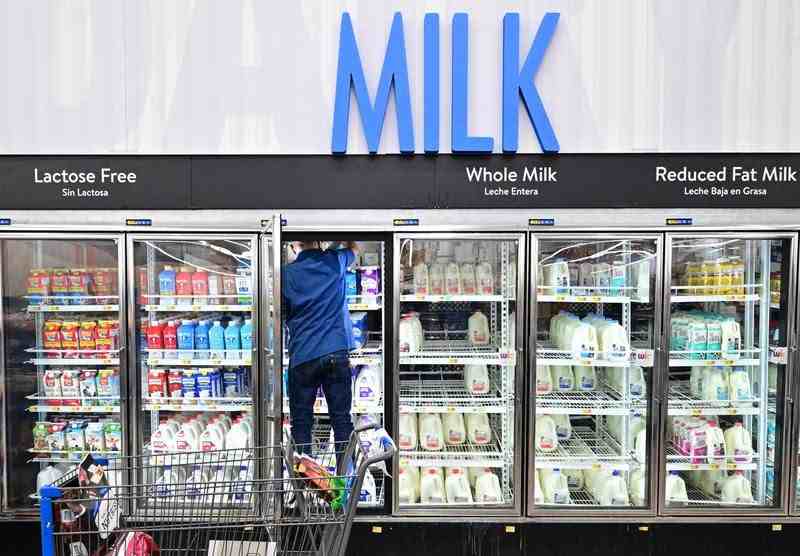US consumer spending dips for second straight month as inflation cools

A key measurement for US inflation released on Friday showed that prices continued to cool in December as consumer spending dipped, clearing the way for the Federal Reserve to issue a smaller interest rate increase when it meets next week.
The personal consumption expenditures (PCE) price index, the Fed's preferred inflation metric, rose by 5 percent in December year-on-year, down from November's rate of 5.5 percent, data from the Commerce Department showed.Read More : Biden announces modest climate actions; pledges more to come The PCE price index ticked up by 0.1 percent from November to December. Prices for goods decreased 0.7 percent and energy costs decreased 5.1 percent. Prices for services and food increased.
Core PCE, which excludes food and energy, increased by 4.4 percent year-on-year, down from 4.7 percent in November. The latest data point to a decrease in spending, as Americans appear to be feeling the pain of rising costs.
PCE is the Fed's preferred gauge of inflation as it provides a more comprehensive understanding of consumer behaviour and how households react to changing prices.
The Commerce Department's report showed that consumer spending dipped by 0.2 percent for the month of December, while personal incomes rose by 0.2 percent.
The dip in consumer spending increases the risk of the US entering a recession, as it shows that households are changing their behaviour — such as purchasing cheaper goods and services — in reaction to higher prices.
Goldman Sachs estimates that the probability of the US entering a recession this year is 35 percent. The Fed raised its interest rate seven times last year to the range of 4.25 percent to 4.5 percent, increasing borrowing costs such as mortgages and car loans.
Perhaps nothing has been hurt more by the Fed than the housing market, which saw mortgage rates climb to more than 7 percent last year. The average long-term mortgage rate this week dipped to 6.13 percent, showing some signs of relief, according to mortgage buyer Freddie Mac.
Policy officials are expected to raise interest rates by a quarter of a percentage point when they meet next week.
The personal consumption expenditures (PCE) price index, the Fed's preferred inflation metric, rose by 5 percent in December year-on-year, down from November's rate of 5.5 percent, data from the Commerce Department showed.
Core PCE, which excludes food and energy, increased by 4.4 percent year-on-year, down from 4.7 percent in November. The latest data point to a decrease in spending, as Americans appear to be feeling the pain of rising costs.
PCE is the Fed's preferred gauge of inflation as it provides a more comprehensive understanding of consumer behaviour and how households react to changing prices.
The Commerce Department's report showed that consumer spending dipped by 0.2 percent for the month of December, while personal incomes rose by 0.2 percent.
The dip in consumer spending increases the risk of the US entering a recession, as it shows that households are changing their behaviour — such as purchasing cheaper goods and services — in reaction to higher prices.
Goldman Sachs estimates that the probability of the US entering a recession this year is 35 percent. The Fed raised its interest rate seven times last year to the range of 4.25 percent to 4.5 percent, increasing borrowing costs such as mortgages and car loans.
Perhaps nothing has been hurt more by the Fed than the housing market, which saw mortgage rates climb to more than 7 percent last year. The average long-term mortgage rate this week dipped to 6.13 percent, showing some signs of relief, according to mortgage buyer Freddie Mac.
Policy officials are expected to raise interest rates by a quarter of a percentage point when they meet next week.
Source: www.thenationalnews.com
